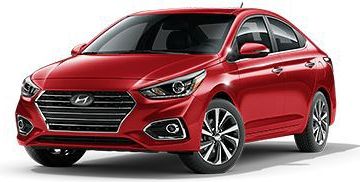Choosing the right car is crucial in a world where automobiles are an essential part of daily life. Your vehicle reflects your personality and needs to align with your budget and lifestyle. With many options available in the automotive market, finding the perfect match can seem daunting. However, armed with the proper knowledge and guidance, you can navigate the myriad of choices to select a car that suits your needs, preferences, and financial situation. This comprehensive guide aims to help you effectively match your vehicle to your budget and lifestyle.

Assess Your Needs and Priorities
Before diving into the car-buying process, take some time to evaluate your needs, priorities, and lifestyle. Consider factors such as the number of passengers you typically transport, your daily commute distance, desired features, and any specific requirements such as fuel efficiency or cargo space. Also, think about purchasing a used car vs a new car. A range of used vehicles cater to different budgets and lifestyles, offering an affordable alternative to buying new. Used cars often come with lower costs and depreciation rates, making them an attractive option for budget-conscious buyers. Understanding your needs will guide you towards vehicles best suited to your lifestyle.
Set a Realistic Budget
- Consider Ownership Costs:
Beyond the purchase price, it's essential to consider the long-term ownership costs associated with a vehicle. Evaluate depreciation, insurance premiums, maintenance and repair expenses, fuel efficiency, and resale value. Some vehicles may have a higher upfront cost but lower operating costs over time, while others may be more affordable initially but incur higher ongoing expenses. Analyze ownership costs comprehensively to make an informed decision. - Evaluate Financing Options:
Unless you're purchasing a car outright with cash, you'll need to explore financing options such as loans or leases. Shop for competitive interest rates and loan terms from banks, credit unions, or online lenders. Consider factors such as down payment requirements, monthly payments, and total interest costs over the life of the loan. Additionally, compare leasing terms if you're considering leasing a vehicle.
Explore Different Types of Vehicles
The automotive market offers various vehicle types to cater to lifestyles and preferences. Whether you're looking for a compact sedan for city driving, a spacious SUV for family outings, or a fuel-efficient hybrid for eco-conscious commuting, there's a vehicle type to suit every need—research different vehicle segments to understand their features, advantages, and drawbacks. When comparing options, consider factors such as size, fuel efficiency, performance, and safety ratings.
- Test Drive Multiple Vehicles:
Once you've narrowed your choices to a few models, schedule test drives to experience each vehicle firsthand. Consider driving dynamics, comfort, visibility, noise levels, and interior features. Testing multiple cars allows you to compare performance and overall driving experience to determine which car best suits your preferences and needs. Ask questions and seek clarification from the salesperson or dealer representative. - Research Reliability and Resale Value:
Reliability and resale value are essential considerations when choosing a car, especially if you plan to keep it for several years or sell it in the future. Research consumer reviews, reliability ratings, and resale values for different makes and models to gauge their long-term durability and market appeal. Vehicles with a reputation for reliability and substantial resale value tend to be more cost-effective over time, as they incur fewer repair costs and retain their value better.
Plan for Maintenance and Repairs
All vehicles require regular maintenance and occasional repairs to run smoothly and safely. Research the expected maintenance schedule and costs for the cars you're considering, including routine services. Additionally, consider factors such as warranty coverage, roadside assistance, and availability of certified service centers. Planning for maintenance and repairs upfront will help you budget for ongoing expenses and avoid unexpected costs.
Negotiate the Best Deal
Once you've chosen the right car for your budget and lifestyle, it's time to negotiate the purchase price and terms with the dealer. Do your research to understand the vehicle's fair market value and leverage this information during negotiations. Be prepared to negotiate the price and factors such as financing rates, trade-in value, and add-on services. Don't be afraid to walk away if unsatisfied with the terms offered. You can secure a deal aligning with your budget and preferences with patience and persistence.
Plan for Future Needs
Finally, consider your future needs and circumstances when selecting a car. While choosing a vehicle that meets your current requirements is essential, think ahead to potential lifestyle changes such as starting a family, changing jobs, or relocating to a different area. Selecting a versatile vehicle that can adapt to evolving needs will ensure you maximize the value and longevity out of your investment.

Matching your car to your budget and lifestyle requires careful consideration of your needs, preferences, financial situation, and long-term goals. Following the steps in this guide, you can make a good decision that satisfies your transportation needs while staying within your budget constraints. Whether you're looking for a practical commuter car, a spacious family vehicle, or a stylish luxury sedan, there's a perfect match out there waiting for you. Take your time and enjoy the journey of finding the ideal car for your needs and preferences.




